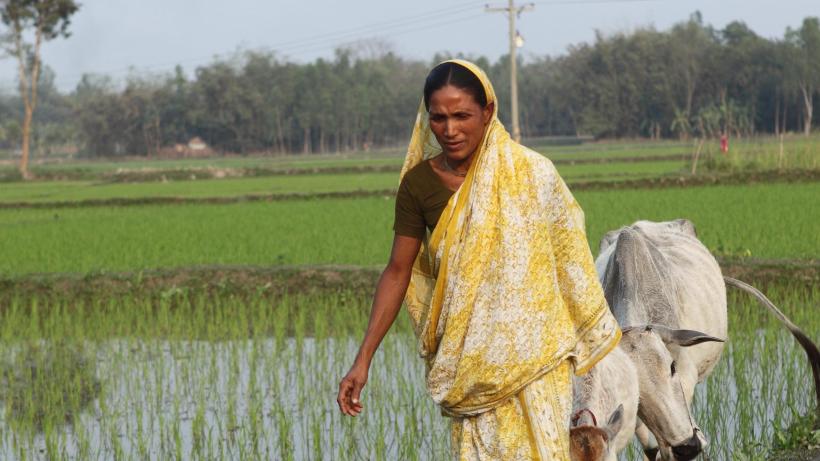
Transforming the lives of the ultra-poor
In one of the longest running evaluations of its kind, our researchers found that a ground breaking ‘graduation’ programme pioneered by BRAC is highly effective in lifting households out of extreme poverty. Four years after taking part in the programme, women in Bangladesh increase their annual earnings by 37%, and seven years after, they continue to escape poverty at a steady rate. By 2018, the programme is expected to have reached 3.7 million households globally.
What is the challenge?
Nearly 1 billion people worldwide still live below the international extreme poverty line of $1.90 per day. These ‘ultra-poor’ have been particularly hard to reach with anti-poverty programmes. Living in the poorest villages in the poorest countries of the world, most of the ultra poor are women and they often lack the skills and capital to lift themselves out of poverty.
Addressing the problem
A ground breaking ‘graduation’ approach pioneered by BRAC, a global NGO, addresses both the lack of assets and skills of the ultra-poor, and aims to graduate them out of extreme poverty. In Bangladesh, ultra-poor women received livestock and two years of training to help them work with the livestock as part of the programme.
Research results
IGC researchers performed a rigorous seven-year evaluation of the BRAC programme in rural Bangladesh and found:
- The ultra-poor are limited to irregular, poorly paid agricultural and domestic maid jobs. Their hourly earnings would be twice as high rearing livestock.
- After four years, targeted women shifted to more steady and productive work. They worked 25% more days and increased earnings by 37%.
- Seven years after the start of the programme, beneficiaries continue to escape poverty at a steady rate. Access to renting or owning land was also two times higher than in year 4 (Bandiera et al., 2017, "Labor Markets and Poverty in Village Economies", The Quarterly Journal of Economics).
Impact on policy
Studies by IGC and other researchers have shown the programme to be scalable and effective across a wide range of contexts and countries with similar impacts – more stable self-employment and increased savings. This evidence has been integral in supporting the programme’s expansion:
- Recent data shows that close to 60 graduation programmes are now implemented in nearly 40 countries.
- One third of ongoing projects are being implemented by governments, reflecting the approach’s integration into national social protection strategies.
- Since 2002, over 2.5 million households have been reached by ongoing programmes. By 2018, an additional 1.2 million households is expected to be reached.
- Basic entrepreneurship: A big new idea in development
Oriana Bandiera, Robin Burgess, Narayan Das, Selim Gulesci, Imran Rasul, and Munshi Sulaiman
- Event: Tackling extreme poverty - evidence from the field
Oriana Bandiera, Robin Burgess, and Esther Duflo
- Video: Tackling extreme poverty - transforming the lives of the ultra-poor
Oriana Bandiera
- Infographics

